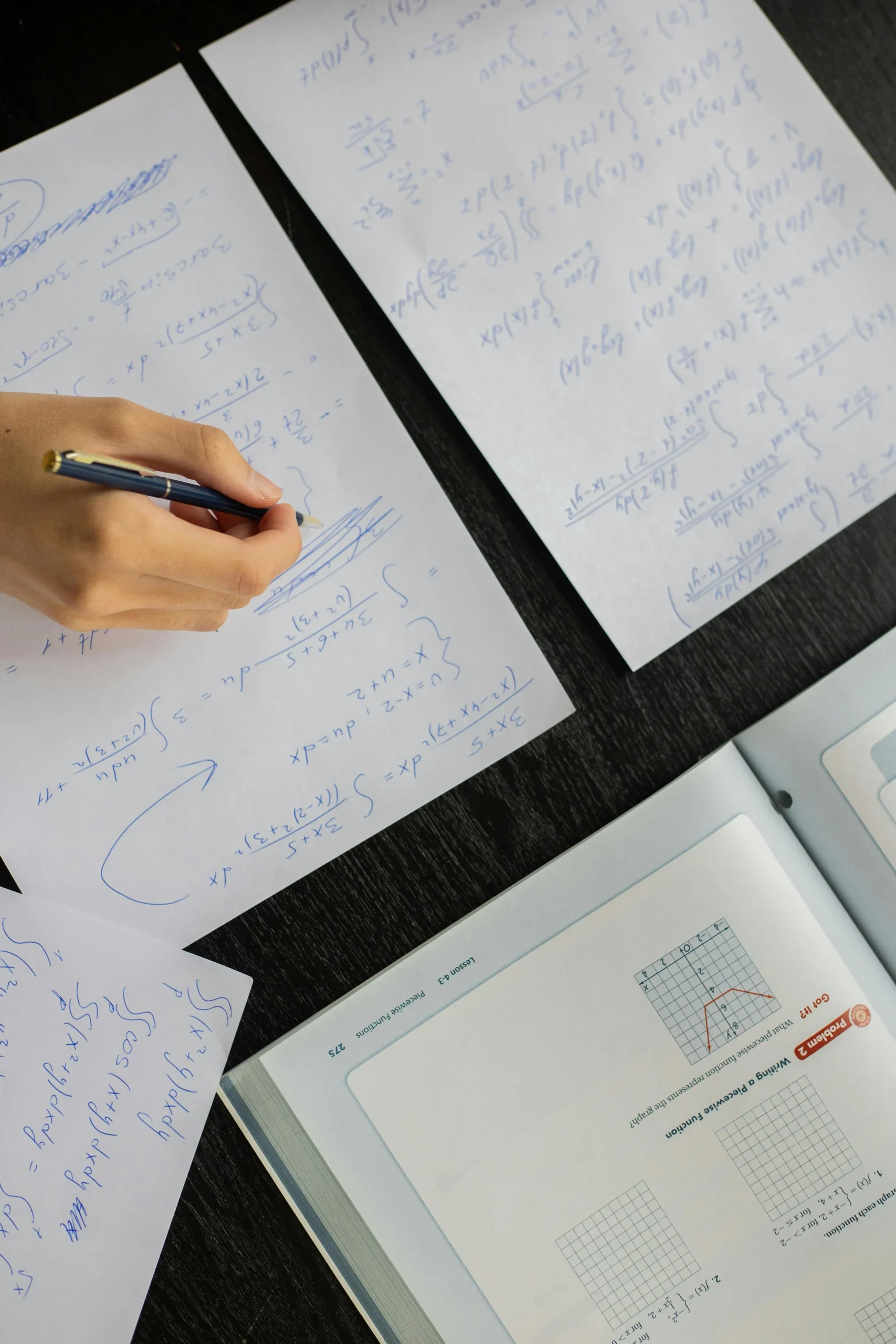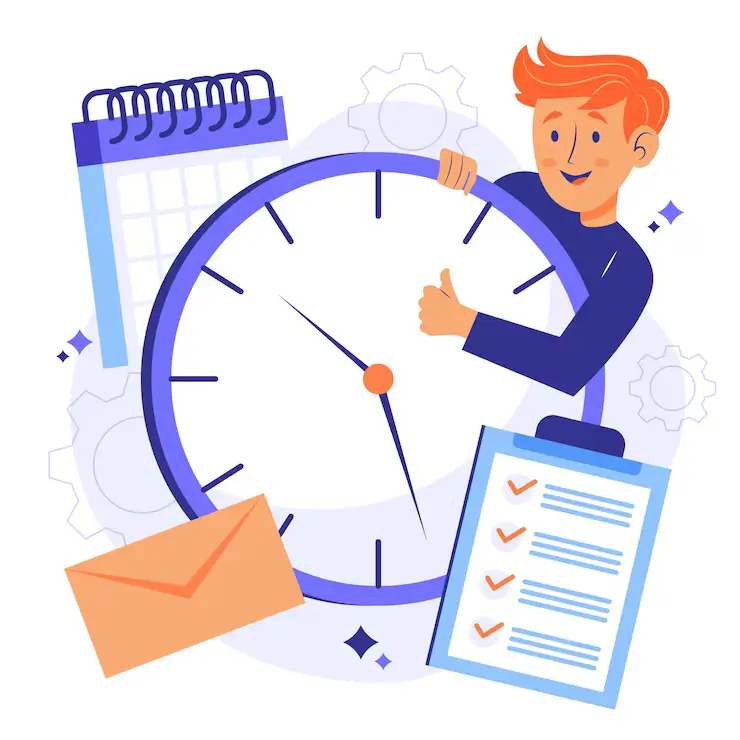Many students find exams to be stressful and anxiety-provoking, but with adequate preparation you can approach them with confidence and achieve better results. This comprehensive guide will walk you through effective strategies to prepare for exams, covering everything from making study plans to managing time during the actual test. Thereby enabling you to prepare for any examination that may come their way by following these tips. Below are methods to prepare for an exam that is near:
1. Create a Good Study Plan
A good study plan is the basis of a good exam preparation. Following is how to make one:
1. Start getting ready as soon as possible: Ideally it’s best if you start well ahead of when the exam date will come by some weeks if possible; then there will be no need of cramming at the last minute which can lead to poor performance in the end.
2. Determine where you stand academically: Identify your strengths and weaknesses in each subject or topic. This will help you allocate your study time more efficiently.
3. Divide your syllabus: Split the examination contents into smaller portions. This makes it easy to handle and monitor progress.
4. Set achievable objectives: Define daily and weekly studying goals. They should be realistic enough so that you do not wear out or lose motivation.
5. Make a timetable: Give particular time slots to every topic or subject matter. Don’t forget to incorporate intervals and revision time.
6. Be adaptable: Allow changes in plan as you go on. Some subjects may take longer than expected at first instance.
Do you remember a study scheme is simply a roadmap rather than fixed rules? Rearrange it when necessary for your needs and pace of learning.
2. Organize Your Study Materials
Being well organized is critical to effective studying. Here are some points on how to organize your materials:
1. Help to gather all required inputs: University books, manuals of lectures, images and notes.
2. Select a certain study zone: Find a silent and lighted place that does not allow distraction at all.
3. Use filing cabinets or binders: Classify your notes and handouts depending on subjects or topics for easy access.
4. Take advantage of digital tools: Try out using applications or computerized programs for taking notes, flash cards and the calendar in which you put everything together.
5. Make summary sheets: Create short summaries/mind maps for quick reference from important points condensed down into them.
6. Keep track of key dates: Mark examination days, meetings with study groups as well as any other deadlines that matter on a calendar.
Overall when one keeps their reading resources in order then it becomes easier to manage time while reducing anxiety levels during preparation for such examinations related activities like revisions and so on.
3. Understand Your Learning Style
In order to study efficiently you must know about your personal learning preference, because people learn differently. The three most important learning styles and ways to use them are as follows:
1. Visual learners: If you learn by looking, then take notes using diagrams, charts and colored pens in your notes. For example, you might watch some educational videos or make mind maps which will help you to understand concepts this way.
2. Auditory learners: If listening is more your thing when it comes to studying, record them on tape or keep listening to them while you read along with the book in front of you during holidays. Another idea is to join a reading club where members discuss books together.
3. Kinesthetic learners: For the kinesthetic learner, writing out notes multiple times or using objects to illustrate concepts may be an option.
4. Reading/writing learners: This group usually prefers various kinds of texts such as textbooks and detailed notes or summaries instead of just listening.
Different study strategies should also be embraced so that one can find what suits him or her best. Most times combining these techniques works best at all ages and stages in life.
4. Practice with Past Papers and Mock Exams
To prepare for exams, one of the most effective ways is practicing with past papers and mock exams. This approach comes with several benefits:
1. Familiarization with exam format: You will get used to the structure and type of questions commonly asked.
2. Time management practice: By timing yourself while doing practice exams, you will get a feel of pacing when it comes to doing the actual exam.
3. Identification of knowledge gaps: You can identify areas that require more study time through doing practice exams.
4. Confidence building: Doing well in mock examinations can improve your confidence level when sitting for the real one.
5. Stress reduction: You will feel less anxious on the day of exams if you have a good understanding of the format in question paper.
6. Improvement tracking: Consistent practice tests enable tracking of progress over time.
When attempting past papers, create exam conditions similar to what was experienced during your last assessment period at school; find a quiet place away from noise, use a stopwatch and do not consult notes or books unless it is an open-book examination knowledge bible.
5. Maintain Physical and Mental Well-being
Your physical and psychological wellness greatly affects your potential for learning effectively and doing well in examinations. Here are some strategies to keep up your health:
1. Make sure you sleep enough: Aim for 7-9 hours of nightly rest. Good sleep is critical for memory consolidation and cognitive function.
2. Have a balanced diet: Give your brain some nutrition. Avoid too much caffeine or sugar as they can cause crashes in your energy levels.
3. Exercise regularly: Physical activity can improve moods, decrease stress, and increase cognitive functions. Even short walks are helpful.
4. Stress reduction practices: Use techniques such as deep breathing, meditation or yoga to manage exam related anxiety.
5. Take periodic breaks: Step away from your studies from time to time; this helps avoid burnout. Short breaks actually enhance focus once you return to studying again.
6. Keep social connections: Don’t withdraw yourself totally without friends and family around you; being with them provides emotional support and alleviates the burden brought by stress on you.
Bear in mind that looking after both your mental and physical health will not waste any of your study time but instead is a necessary step towards effectively preparing for examinations themselves.
6. Manage Time Effectively During the Exam
The real exam is where all your preparation is put to play. Here are tips for managing time well during the exam:
1. Read instructions carefully: At the beginning, take some minutes to read all instructions thoroughly and understand them.
2. Scan the entire exam: Quickly read through all questions just to see an overview of what’s ahead.
3. Budget your time: For every part of the question or section or piece of work consider its point value and your prowess in the topic.
4. Start with easier questions: Try to tackle questions that you are sure about first because it builds your confidence and momentum within.
5. Don’t get stuck: If you’re stuck on a question just move on and come back later if time allows.
6. Leave time for review: Most importantly, it is good to reserve some time at the end for reviewing answers and making needed alterations.
7. Use any remaining time wisely: If finishing ahead of schedule, use this extra moment helpful with revisions or amplification of answers which may add more points due to their additional explanations respectively.
In conclusion, managing time effectively can guarantee that one will handle every part of the examination optimally.
Summary
Exams do not have to be hard when you know how to prepare for them. If you want to pass exams confidently and get improved grades, you should create a good reading plan, put your things in order, know your studying style, go through old question papers, keep fit in mind and body, as well as manage time properly during examinations.
It’s worth bearing in mind that all achievements come eventually through persistent effort. So start preparing today and concentrate while believing in yourself. Use these tips and you are well on your way toward acing those exams.







